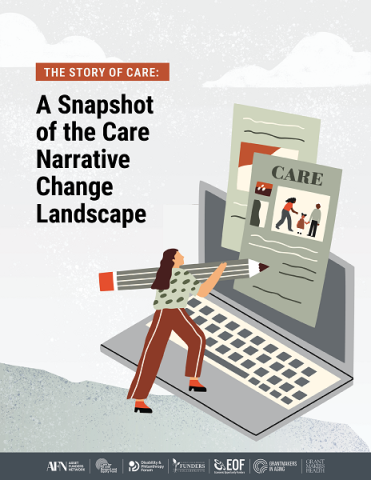A Snapshot of the Care Narrative Change Landscape

At some point, every one of us will need care or need to provide care. This became even more clear as the COVID-19 pandemic allowed us to witness the extraordinary contributions of caregivers and exposed the failings caused by our nation’s lack of care policies, especially for communities of color. At the height of the pandemic, the United States made unprecedented progress on care policies, but the progress was temporary and insufficient, especially compared to the need. Today, advocates, philanthropy, organizers, and policymakers have an opportunity to build on the heightened awareness in the United States of the central role care plays in families, communities, and the economy to set the stage for ongoing, sustainable policy progress. Leaders are already engaging in a wide variety of smart strategies and tactics. One of those is narrative-change strategies.
Deploying narrative-change strategies across care issues – child care and early learning, long-term services and supports for older adults and people with disabilities, paid leave, support for family and friend caregivers, and improving the quality of paid care workers’ jobs – will help create the conditions for cultural and policy progress. Coming together for the first time across issues and constituencies, with support from Care for All with Respect and Equity (CARE) Fund, a group of six philanthropy support organizations – Asset Funders Network, Early Childhood Funders Collaborative, Economic Opportunity Funders, Grantmakers In Aging, Grantmakers In Health, and Disability & Philanthropy Forum – agreed to collaborate to develop a national landscape analysis of care economy narrative-change efforts. Their goals were to learn and share with funders what kinds of narrative-change strategies and tactics are being employed, which care funders and grantees are already supporting and using them, where the most significant gaps and opportunities for learning and action are, and how philanthropy can best support this work.
In order to identify the promising narrative-change practices already being supported and deployed for care issues, we reviewed publicly available information (such as websites, reports, and articles), conducted a funder survey, interviewed selected care economy narrative-change field experts and ran a focus group with selected funders. The results in this report reflect a snapshot of the work happening at this moment in time based on this research.